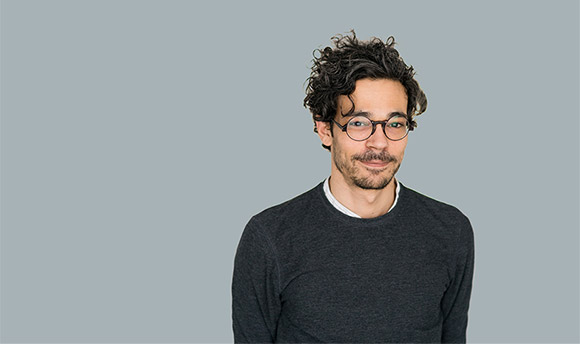- This course is still available for entry in September 2025.
- International applications close for the September intake on the 30 June 2025 for all applicants who would require to be sponsored on a Student visa to study here.
Mental Health and Psychosocial Support - MSc
Do you want to make a difference to the health and well-being of people in settings affected by conflicts, wars, displacement, and disasters? Are you passionate about contributing to psychosocial wellbeing of affected populations or looking for a qualification that will enable you to work at a senior level in health, development and humanitarian policy and practice in the UK or abroad, particularly settings affected by conflicts, wars, displacement, and disasters? This MSc in Mental Health and Psychosocial Support (MHPSS) could be the perfect stepping stone for your career.
The course focuses on the current challenges and policy debates in global responses in meeting the mental health and psychosocial needs of populations affected by poverty, instability, displacement and conflict.
This course will be particularly attractive to those working in humanitarian settings, health practitioners, and community and development workers, who are looking to further their theoretical knowledge and practical skills in order to consolidate and extend their learning in the area of how to incorporate community-based MHPSS strategies and consideration into other health and humanitarian provision through mainstreaming. It will equip you to work effectively at senior level to promote mental health and psychosocial wellbeing of people through effective and responsive programming.
The course offers flexibility in module choice and can be studied full time or part time.
Please note that this course is going through a routine review process over the next year and that any changes to course content arising will be reflected on this web page.
Why QMU?
- Unique academic institution: The Institute for Global Health and Development (IGHD) at QMU offers a range of postgraduate courses aimed specifically at those who wish to work in health policy and practice.
- Make a difference to your career and to others' lives: Our courses put a strong focus on the social aspects of health and well-being and on health systems strengthening from a community-based perspective. They will equip you to assist in improving the lives of the most vulnerable people in the world, whether that be overseas or locally in Scotland. You will develop a strong understanding of current global health and development issues and will equip yourself with the tools you need to forge positive change locally, nationally or internationally.
- Access to expertise and industry connections: You will learn from experienced figures both in and outside of QMU with extensive experience in the field and make connections that could last your whole working life. At IGHD we work directly with ministries of health, international and national organisations and local communities to develop real solutions to health and development problems. We have links with various bodies, including the following:
- Health Systems Global
- Mental Health and Psychosocial Support Network
- Scottish International Development Alliance
- Development Studies Association
- Scottish Government
- Scottish Refugee Council
- At QMU we hosted the NIHR Research Unit on Health in Situations of Fragility (RUHF) and we are part of the UK FCDO-funded project ReBUILD for Resilience.
- Join us on our compassion mission: Our work at IGHD addresses the health and wellbeing of those in greatest need, whether that be vulnerable populations in Scotland or those living in countries affected by conflicts, wars, displacement and disasters.
- Wide ranging teaching and research expertise: Our teaching and research expertise spans multiple aspects of global health and development. These range from health financing, support to fragile and conflict-affected settings, to refugee integration and child protection.
Studying MSc Mental Health and Psychosocial Support
Mental health and psychosocial support is a diverse field with more biomedically and clinically oriented approaches at one end of the continuum, and more social and wellbeing-oriented approaches at the other.
This course exposes students to the range of perspectives, emphasising practical preparation to equip students to design and facilitate psychosocial approaches that engage the existing social and well-being capacities of displaced and crisis-affected populations. This is achieved by including a variety of course material and teaching perspectives using real-life case examples, as well as providing opportunities for knowledge exchange through IGHD’s vast network of Mental Health and Psychosocial Support practitioners and academics.
You will examine the political, historical, social, cultural and economic foundations that underlie contemporary conflicts and disasters, and you will explore concepts of vulnerability and resilience of individuals and households and their interaction with service providers in conflict, post-conflict, disaster, and post-disaster settings.
It will also be possible for you to undertake modules that focus on strategies for refugee integration into host societies and gender equity and inclusion in policies, services and interventions.
Structure and exit awards
You can opt to study for the full MSc (180 credits), a PgDip (120 credits) or a PgCert (60 credits).
You can also register as an associate student to complete a single module for CPD. On completion of a single module, you may wish to complete further modules and progress your studies to a named award. A variety of modules can be studied, for example: Psychosocial Interventions for Displaced Populations and Forced Displacement and Integration Module. Contact IGHD for more information.
Teaching, learning and assessment
Teaching is comprised of a combination of lectures, seminars, tutorials, case studies, simulation exercises and projects. Assessment is continuous and incorporates assignments, action plans, projects and presentations.
For your dissertation projects, you can chose to do a desk study involving a literature review or conduct primary data collection in collaboration with national or international organisations working in health and development.
Teaching hours and attendance
Your exact attendance requirements at QMU will depend on the module you are studying and whether you are studying full time or part time. In addition, for each module students spend approximately 10-12 hours of each week on preparatory class work independently and with colleagues, including readings and exercises available on dedicated web-based learning platforms.
Class sizes
We expect approximately 10-15 students to enrol for this course each year.
Teaching staff
You can read more about the teaching staff on this course at the bottom of this page. Please note that teaching staff is subject to change.
PgCert
For the award of PgCert, you will complete the following modules:
- Psychosocial Interventions for Displaced Populations (15 credits): This module seeks to establish critical competences for the advocacy, conceptualisation, appraisal, planning, implementation, and evaluation of psychosocial programmes for war-affected populations, displaced persons, and refugees. This is a core module of the MHPSS MSc program.
- Project Design and Management (15 credits): This module seeks to equip participants with knowledge and practical skills regarding the design of health and social development projects. Such capacities are of relevance in preparing project proposals for funders, in managing projects and have the potential to promote accountability and partnership approaches in project planning and management. It also seeks to equip participants with critical skills to assess problems and challenges in the application of project design approaches to development and health work. This is a core module of the MHPSS MSc program.
- Plus one 15-credit module chosen from:
- Community-based Psychosocial Support (15 credits): This module offers a critical overview of the community-based psychosocial (CBPS) approach in humanitarian and development settings. Students will explore the foundational concepts, theories, and rationale behind CBPS. Practical applications, challenges, and ethical issues will be examined, alongside strategies for integrating CBPS into various services to enhance mental health and psychosocial wellbeing.
- Forced Displacement & Integration (15 credits): This course aims to provide students with a critical understanding of debates around refugees and refugee integration. By the end of the course, students will be equipped to understand and critique integration policy and practice across a variety of contexts, including the UK and Europe. Students will be expected to be able to design and propose refugee integration services and will become familiar with dominant funding proposal templates and systems.
- Global Approaches to Gender and Health (15 credits): This module provides a critical analysis of gender and health in a global context, exploring how entrenched gender norms impact the health of women, men, girls, and boys. Using feminist, masculinities, and intersectionality theories, it examines gender as a social determinant of health and addresses the challenges of diverse and fluid gender identities. Participants will gain skills to assess and implement gender-sensitive analysis and planning tools in global health.
- Plus one 15-credit elective module from:
- Forced Displacement and Integration: Theory, Policy, and Practice
- Global Approaches to Gender and Health
- Health Systems in Fragile Settings
- Sexual and Reproductive Health
- Research Proposal Writing
PgDip
For the award of PgDip, you will complete the modules listed for the PgCert, plus:
- Global Public Health and Social Policy (20 credits) (core module): This module equips participants with the knowledge and skills to understand the impact of globalization on the health of populations across high-, middle-, and low-income settings. It explores engagement in the global health field through public health and social policy, emphasizing a social justice approach to global health.
- Health Systems, Services and Communities (20 credits) (core module): This module aims to provide you with an overview of the current challenges and policy debates in local/national/global responses aimed to strengthening health systems, designing appropriate health system interventions and meeting the health needs of populations globally, including those affected by or recovering from instability and conflict.
- Global Health Research (20 credits) (core module): This module aims to problematize the production and evaluation of research knowledge and evidence in global public health and development. It contextualizes methodological debates in relation to epistemology, theory, and methods, and encourages critical reflection on the collection, analysis, and appraisal of data and evidence relevant to global health and development priorities, programs, and policies.
MSc
To achieve an MSc students must also complete a Dissertation (60 credits) involving desk study or fieldwork on an approved topic related to mental health and psychosocial support.
This MSc in Mental Health and Psychosocial Support will equip you for employment in the health and humanitarian sectors with a particular focus on mental health and wellbeing issues for women, children and men.
We anticipate that graduates from this course will find employment with humanitarian aid agencies, MHPSS programmes, child-focused agencies, refugee integration programmes, organisations running gender-based violence interventions in fragile settings and in programmes related to work in global settings.
Entry requirements
A UK honours degree or equivalent from a relevant subject area (arts, humanities, health or social sciences). Students without an honours degree may be considered if they have other relevant qualifications and/or appropriate work experience.
International students: You will be required to provide evidence of English language competence at no less than IELTS 6.0 with no individual component score less than 5.5.
Disability/health conditions
If you have a disability, long-term physical or mental health condition, or learning disability, it should not stand in the way of your studying at QMU. However, if you are not sure whether your disability might be a barrier in your studies or in relation to the professional standards, please contact the disability service who will be able to have a conversation with you about reasonable adjustments and supports available to you.
Applying for this course
For more information on applying, or to apply for this course, please follow the links in the 'Start your application' box at the top right of this page.
Application deadline
Home students: August for a September 2025 start and December for a January 2026 start.
International students: End of June for a September 2025 start and November for a January 2026 start.
Terms and Conditions
The delivery of this course is subject to the terms and conditions set out in our 2025/26 Entry - Terms and Conditions (Postgraduate).
Contact Admissions or contact IGHD for more information.
- The delivery of this course is subject to the terms and conditions set out in our 2025/26 Entry - Terms and Conditions (Postgraduate).
- The information on this page is correct at the time of posting (October 2024) but is subject to change following a routine re-validation. In the event that modules change, QMU will seek to use reasonable endeavours to ensure that there is no detrimental impact on students. Please keep an eye on this page for updates.
Become your best you: study at QMU
Course Overview
Join us at one of our Postgraduate Open Events
Find out about online and in-person opportunities to meet with us to find out more about our postgraduate courses and study at QMU.
Postgraduate Open Events - More Info and Bookings

